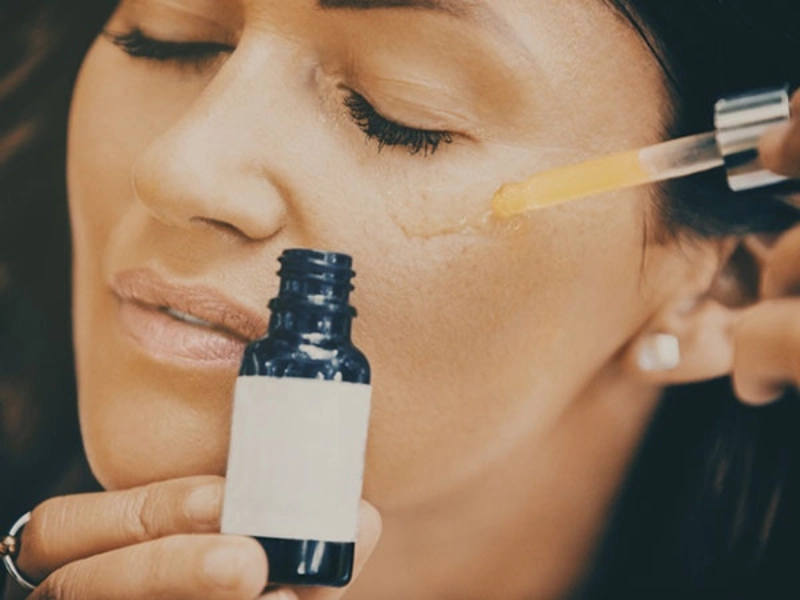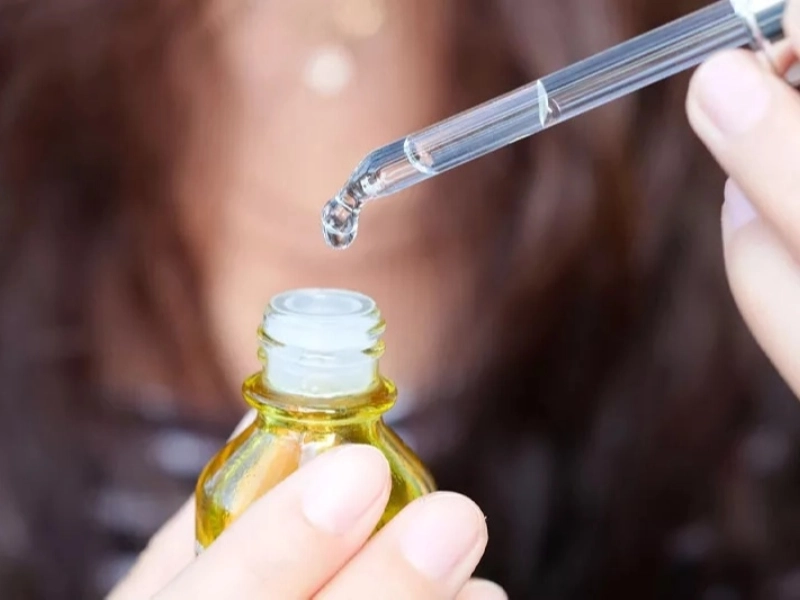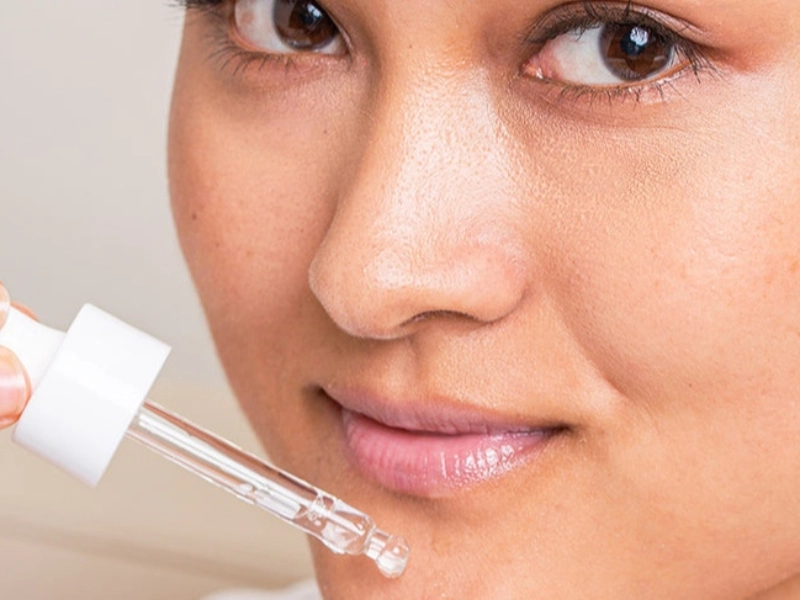Vitamin C For Good Skin: Fighting Blemishes And Acne
Although vitamin C is best known for its anti-aging and brightening properties, it's also a skincare superhero when it comes to clearing up acne. It aids in boosting collagen, reducing oil production, and fading dark spots and hyperpigmentation. It is an effective treatment for scurvy and can also assist with acne, dark spots, and wrinkles.
Blemishes and Acne

How to Avoid Acne
 The production of collagen and its antioxidant qualities are two well-known benefits of vitamin C, also known as ascorbic acid. This lessens wrinkles, hyperpigmentation, and shields the skin from UV ray damage over time.
Because it encourages healing from the inside out, it is also believed to aid in the repair of acne scars. Additionally, it might aid in balancing sebum levels, which are a contributing factor in acne outbreaks.
When dead skin cells, debris, and excess oil plug pores, bacteria that feed on sebum and cause irritation grow and blemishes are the result. Hyperpigmentation, or dark spots, can then develop as a result of the inflammation; these spots frequently coexist with acne.
It has been demonstrated that topical vitamin C prevents hyperpigmentation by attenuating the actions of the tyrosine enzyme, which is in charge of generating melanin in the skin. It can be found in facial moisturizers and serums, though serums are more likely to be beneficial and have higher concentrations of the component. It is usually advisable to conduct a patch test before using a new product, starting with an every other day application to ensure your skin can handle it.
The production of collagen and its antioxidant qualities are two well-known benefits of vitamin C, also known as ascorbic acid. This lessens wrinkles, hyperpigmentation, and shields the skin from UV ray damage over time.
Because it encourages healing from the inside out, it is also believed to aid in the repair of acne scars. Additionally, it might aid in balancing sebum levels, which are a contributing factor in acne outbreaks.
When dead skin cells, debris, and excess oil plug pores, bacteria that feed on sebum and cause irritation grow and blemishes are the result. Hyperpigmentation, or dark spots, can then develop as a result of the inflammation; these spots frequently coexist with acne.
It has been demonstrated that topical vitamin C prevents hyperpigmentation by attenuating the actions of the tyrosine enzyme, which is in charge of generating melanin in the skin. It can be found in facial moisturizers and serums, though serums are more likely to be beneficial and have higher concentrations of the component. It is usually advisable to conduct a patch test before using a new product, starting with an every other day application to ensure your skin can handle it.
How to Remove Acne
 Numerous health benefits of vitamin C, also known as ascorbic acid, have been demonstrated. These benefits include the prevention or treatment of heart disease, cancer, common colds, and other illnesses. It is a strong antioxidant that aids in preventing free radical damage to the skin and also contributes to the formation of collagen.
Vitamin C is obtained from food sources such as fruits and vegetables, dietary supplements, and skin care items. Additionally, it can be purchased in topical formulations like as oils, serums, and creams.
Your skin can benefit from topical vitamin C application, but it's crucial to start out slowly and increase dosage gradually. After using a vitamin C product, you should always wear a broad spectrum SPF because vitamin C might make your skin more susceptible to the sun. Additionally, do not combine it with medications like retinoids since this may irritate your skin and prevent the medication from working.
Numerous health benefits of vitamin C, also known as ascorbic acid, have been demonstrated. These benefits include the prevention or treatment of heart disease, cancer, common colds, and other illnesses. It is a strong antioxidant that aids in preventing free radical damage to the skin and also contributes to the formation of collagen.
Vitamin C is obtained from food sources such as fruits and vegetables, dietary supplements, and skin care items. Additionally, it can be purchased in topical formulations like as oils, serums, and creams.
Your skin can benefit from topical vitamin C application, but it's crucial to start out slowly and increase dosage gradually. After using a vitamin C product, you should always wear a broad spectrum SPF because vitamin C might make your skin more susceptible to the sun. Additionally, do not combine it with medications like retinoids since this may irritate your skin and prevent the medication from working.
Handling Acne
 One of the finest vitamins for acne that you may use topically or consume is vitamin C if you have breakouts. It is well recognized to increase the production of collagen, lessen inflammation-related redness and hyperpigmentation, and enhance the look of acne scars.
As a naturally occurring antioxidant, vitamin C guards against harm to all of the cells and tissues in your body, including the skin. By removing extra oil that leads to imperfections, its enzymatic action keeps your pores clear.
In addition, it contains anti-inflammatory qualities and is a potent antioxidant that minimizes dark spots, improves suppleness, and prevents UV damage to the skin. Because it penetrates the skin more deeply than creams, it can be administered topically to lessen the appearance of blemishes, particularly when used as a serum. Initially, try using it once a week or once every other day, and gradually increase to applying it every day. To get the most out of it, combine it with additional antioxidants like ferulic acid and vitamin E.
One of the finest vitamins for acne that you may use topically or consume is vitamin C if you have breakouts. It is well recognized to increase the production of collagen, lessen inflammation-related redness and hyperpigmentation, and enhance the look of acne scars.
As a naturally occurring antioxidant, vitamin C guards against harm to all of the cells and tissues in your body, including the skin. By removing extra oil that leads to imperfections, its enzymatic action keeps your pores clear.
In addition, it contains anti-inflammatory qualities and is a potent antioxidant that minimizes dark spots, improves suppleness, and prevents UV damage to the skin. Because it penetrates the skin more deeply than creams, it can be administered topically to lessen the appearance of blemishes, particularly when used as a serum. Initially, try using it once a week or once every other day, and gradually increase to applying it every day. To get the most out of it, combine it with additional antioxidants like ferulic acid and vitamin E.










